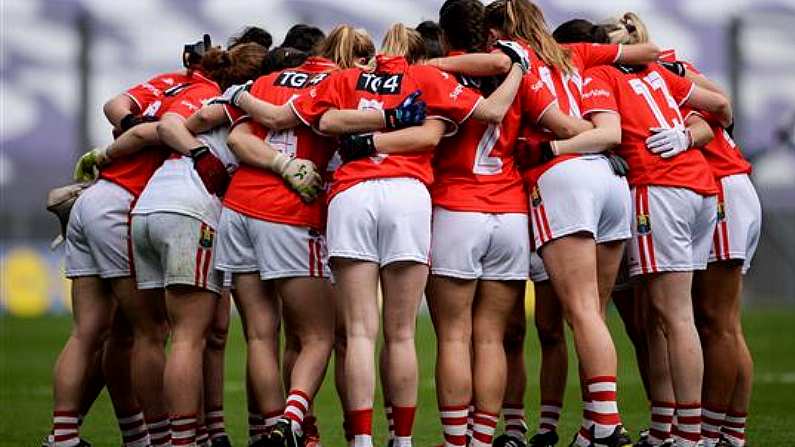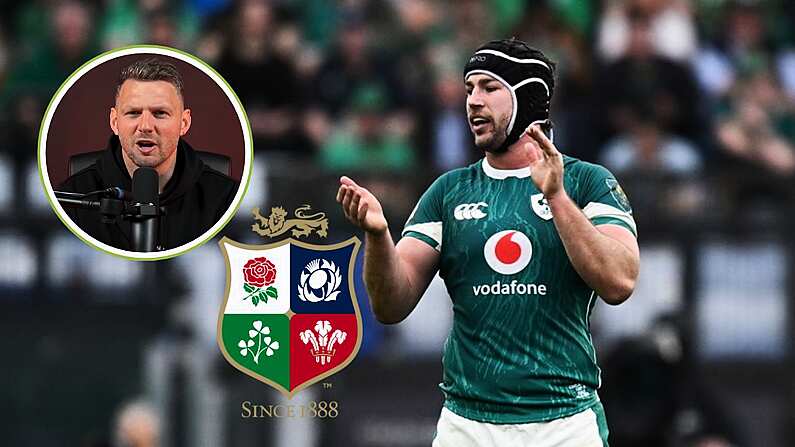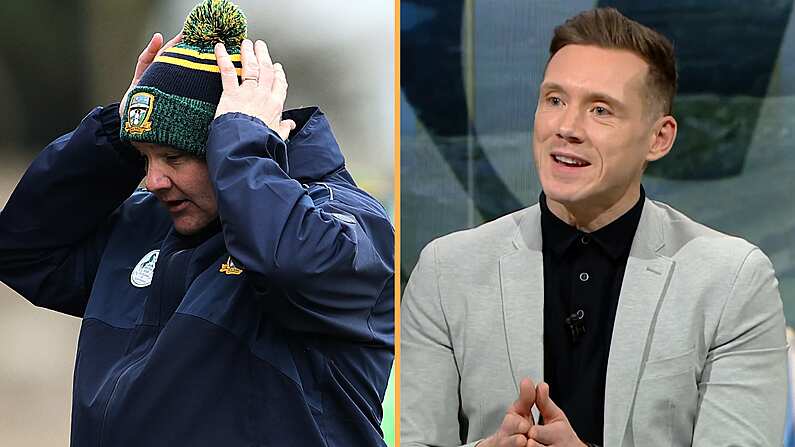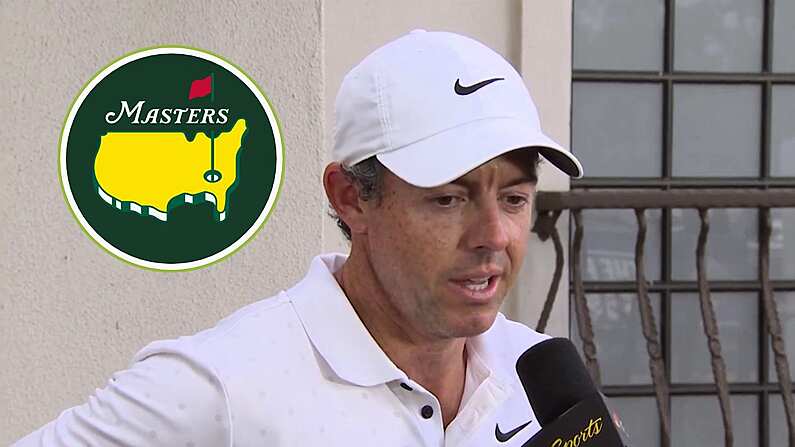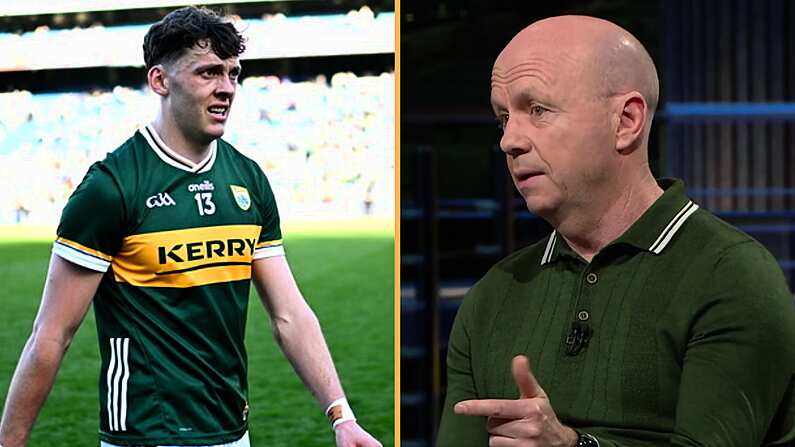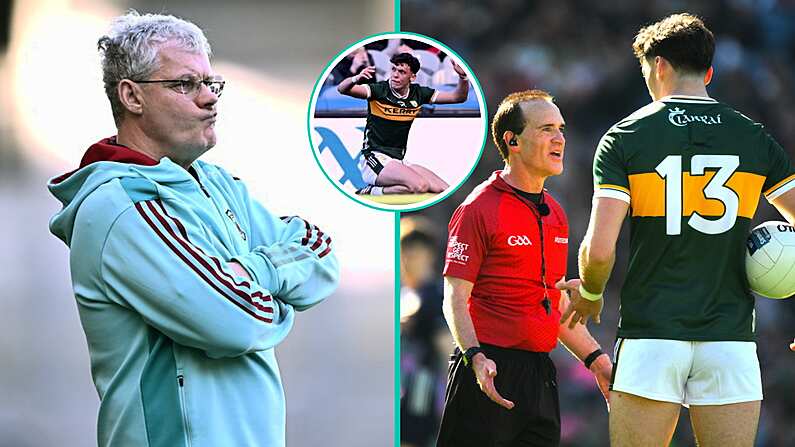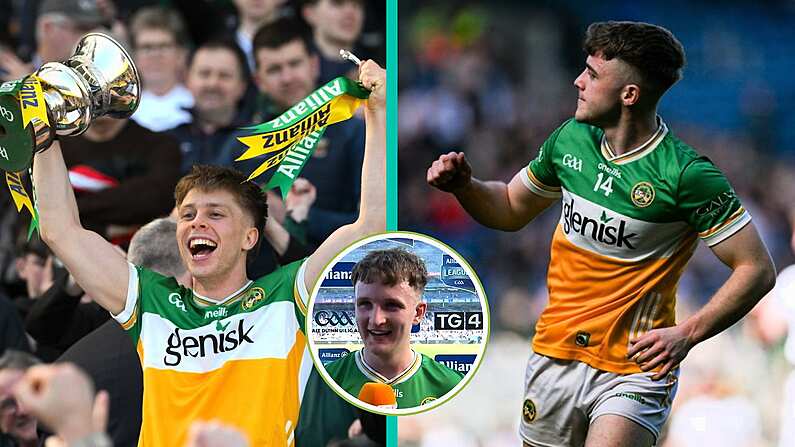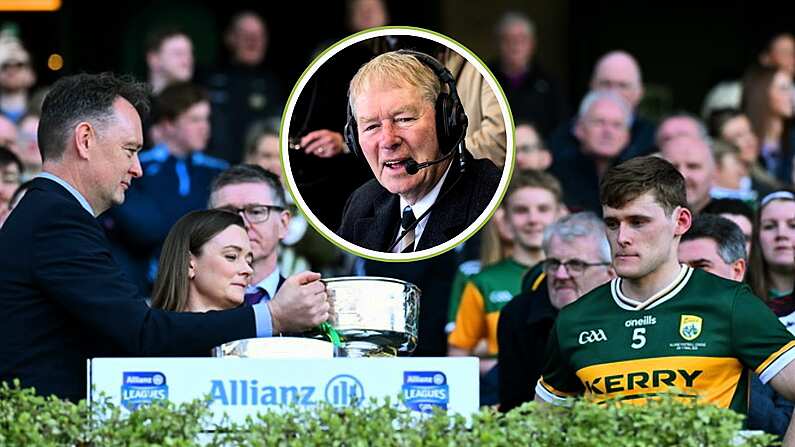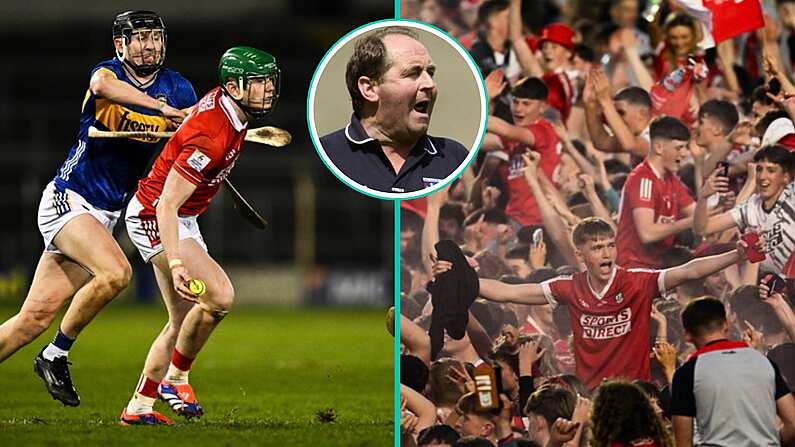"The general public presume 'Oh, they're a great team, they're miles ahead of everybody else'. They're not miles ahead of everybody else.
...And it's that which makes them so special."
One otherwise inconsequential Friday morning in Cork a couple of years ago, my sister, then aged nine, arrived home from school sporting an ear-to-ear grin. Fully aware of my interest in sport, she excitedly recited to me an entirely false backstory to Cork's 'Rebels' moniker - citing Flying Columns and all sorts - which she had learned in school.
With a rueful wince, I hesitantly explained that it was in fact 'our' loyalty to one version of the British Crown during the English War of the Roses, and not the actions of Mick Collins, which saw Cork branded 'The Rebel County'. I also asked that she never divulge this information to a solitary soul, not least someone from Kerry.
We're proud of being perceived as Rebels down Leeside; it's taken on new meaning, of course, in the intervening years since a young and handsome Flemish man called Perkin Warbeck washed up on our shores in 1491, and indeed even since its evolution during Ireland's own War of Independence.
Its modern iteration is one which encapsulates a county's flipping of the bird to the rest of the country as its most famous sporting son acrimoniously departs a World Cup squad. It's being pipped by Kilkenny, losing Setanta to the Aussies, and bringing Brian Corcoran out of retirement to bate them off the park the following year. It's trailing Clare by six points in an All-Ireland semi-final, and Jerry O'Connor sticking his tongue out as he scores the winner with a nonchalant flick of his hurley. It's also calling it a hurley instead of a hurl.
And yet its metaphysical manifestation in Corkonians is waning year upon miserable year of hurling and football implosions; defeat, now, is met largely with apathy as opposed to apoplectic anger. We're adapting a psychological tolerance for losing. As Paul Ring wrote on this website earlier this week, 'Modesty doesn't suit us, but a lot of teams have put manners on us recently'.
But for concerned Corkonians, burdened by this unprecedented existential crisis, one glance at Croke Park on September 25th would have vanquished much of the inner-angst. A Cork GAA team may never have exuded such lofty levels of Corkness as Ephie Fitzgerald's Ladies team that Sunday evening. For the 11th time in 12 years, they Corked all over Croker, once more cementing their place as one of the greatest sports teams this country has ever seen.
For over a decade, the Cork Ladies have proved themselves immune to the all-powerful narrative and momentum swings; they were outplayed for much of September's final with Dublin only to come on strong in the clutch, firing four unanswered points in the final quarter as they fended the Dubs off once more.
It's hard, then, to believe that as recently as 13 years ago, the entire Ladies football setup in Cork bordered on disgracefully inadequate. Their 2003 summer ended in narrow defeat to Kerry, just a week after Waterford had swotted them aside with ease. Seven years, no inter-county silverware.
Just a couple of months later, it was a shaking 22-year-old goalkeeper Elaine Harte who found herself sat atop a barstool in the back lounge of Murray’s Bar, Macroom, attending the county board AGM. Harte had two hours earlier handed a letter to committee member Liz Ahern, who would read it aloud at the meeting.
Speaking to Balls.ie, author of Relentless: The Inside Story of the Cork Ladies Footballers, Mary White, recalls the day that the dream of a polite revolution in Cork Ladies football became a reality:
I would have been involved in the Junior team at the time and I was involved in putting that letter together. I think we all saw that things could be done a lot better than what we had become used to. We tried for a year or two to have things implemented and we weren't been listened to, I suppose. And it's not that players were demanding anything, we were just saying, 'Look, we want to be able to have a weekend-away bonding session. We want to have the team panel picked two months before Championship'.
Because there were instances where a Munster Championship game would happen and players like Deirdre O'Reilly were pulled down out of the stands. There was nothing malicious in the letter, but we just knew deep down this wasn't the right way to go about things.
That probably caused a little movement, and you had the likes of Juliet Murphy and Elaine Harte standing up at the County Board meeting and kind of saying, 'Look, we appreciate what everyone has done - the management team and everything else - but we'd like to come at this from a different angle, and have somebody else in who will bring an element of professionalism that players are beginning to expect'.
The intervening 13 years has heralded 11 All-Ireland titles for a now all-conquering Cork footballing dynasty, nine of them arriving during two spells under Éamonn Ryan, who was drafted in ahead of the 2005 Championship.
And yet, for the unprecedented prevalence of 'Cork' inscriptions on the Brendan Martin Cup, five of those victories were achieved by just a single point, with two further All-Ireland triumphs by two-point margins. It wreaks of a team who, above all else, possess an extraordinary mental fortitude, with their physical talents almost supplementary to a collective mentality which saw them reshape the sport both within their county and nationwide.
"I think that's one of the important things about this team that people actually forget and underestimate," Mary White says.
Look at the comeback in 2014; 10 points down with 16 minutes to go. Like you're talking about digging so deep within yourself as an individual, never mind as a group. To be able to pull that off year in, year out... I mean, it's huge.
The general public presume 'Oh, they're a great team, they're miles ahead of everybody else'. They're not miles ahead of everybody else. They're just so capable of pulling it out of the bag when its needed, and they're so unified. And it's that which makes them so special. It's not the fact that they've won 11 All-Irelands, it's how they've done it as a group in tough situations. And that's the most phenomenal thing about them, really.
Winning is a habit, but habits can sometimes lead to complacency. Obviously there was a blip in 2010, but to think they've only been complacent in one year out of 12, and as well as that, a lot of players could have walked away when Éamonn Ryan left. But they didn't. They continued to challenge themselves under a new coach. Like, there are some players there who played their entire inter-county careers under Éamonn Ryan, and they could have walked away but they didn't. It's the pull of the group.
Like, you look at Orla Finn: She's been on the panel for five years, this is the first year she's got a start. Look at Rena Buckley, pulled off the biggest comebacks in two All-Ireland finals, or at least played her part. Mairéid Kelly was seven years on the panel before she got a start in an All-Ireland final. If that was any other group, or any other individual players, you'd walk away. The pull of that group is a lot more powerful than the winning habit.
It's a testament to that very mentality that the one year in 12 in which they didn't rule the country can be described as "a blip."
This is the Cork team that all Cork teams - male or female - have dreamt of becoming. The undisputed figureheads of their craft, heading down the M50 every September with a cup in the front seat of the bus, another challenger to the throne vanquished. This is a Cork team that Cork fans couldn't have conspired to create in their wildest dreams; rarely in any sport worldwide has such a sustained period of dominance been enjoyed by one same outfit. They embody the most intrinsic of Corkonian beliefs: being the best, and indeed being so good that you really don't need to give a tupenny shite about anywhere else.
And Mary White believes it's high time they're recognised accordingly:
The icing on the cake for me would be for their legacy to be remembered in some form in the new Páirc Uí Chaoimh. Some of these players have never even played in the home of Cork GAA. When you think that we have two of the most successful GAA players of all time - male or female - in Rena Buckley and Briege Corkery... 17 All-Irelands between them, not counting anything else that they've won at underage level, Minor level.
For the people of Cork to see their legacy remembered for generations to come - to have something acknowledge their achievement as the greatest Cork team ever, in any sport, remembered in Páirc Uí Chaoimh - that to me would be brilliant.
Winning the 2014 RTÉ Sports Team award by public vote - I think that was massive for them as a group. Now, saying that, they had to win nine All-Ireland titles and produce the greatest comeback ever to actually get that acknowledgement by the public! But still, that was a huge, watershed moment. But I think the icing on the cake and the next big step - not just for the Cork GAA public, but for the GAA public in general - would be to see something, be it a statue or the naming of a stand, something tangible, down in Páirc Uí Chaoimh to honour this team and these players.
The sister I mentioned earlier is now 12, and despite retaining an interest in such spew-inducing garbage as Youtube vlogs and The Vampire Diaries, gleefully kicks a ball around with the school team. She's not really old enough to remember the Cork men winning anything, and by the same token, is young enough that she's never known anything other than the Cork Ladies team lifting the Brendan Martin Cup. When I bring her down the Páirc to watch Cork in the coming years and she asks me where we're we sitting, I want to be able to tell her we're sitting in the Briege Corkery Stand.
She recently asked me why they're known as 'The Rebelettes' and not The Rebels, and I began wondering the same thing. Ciara O'Sullivan. Bríd Stack. Orla Finn. These are her Rebels; the model athletes showing her that through collective will, work ethic and character, previously unthinkable things can be achieved and celebrated. They're my Rebels, too, restoring the sense of pride and exhilaration I used to feel watching a sea of red march towards The Hill.
Like the last remaining tribe of an indigenous people, the Cork Ladies remain true to the jersey and values upon which so many of us were raised - the beating heart of the county in all of its Rebelliousness. It gives us all an excuse to do the same.

